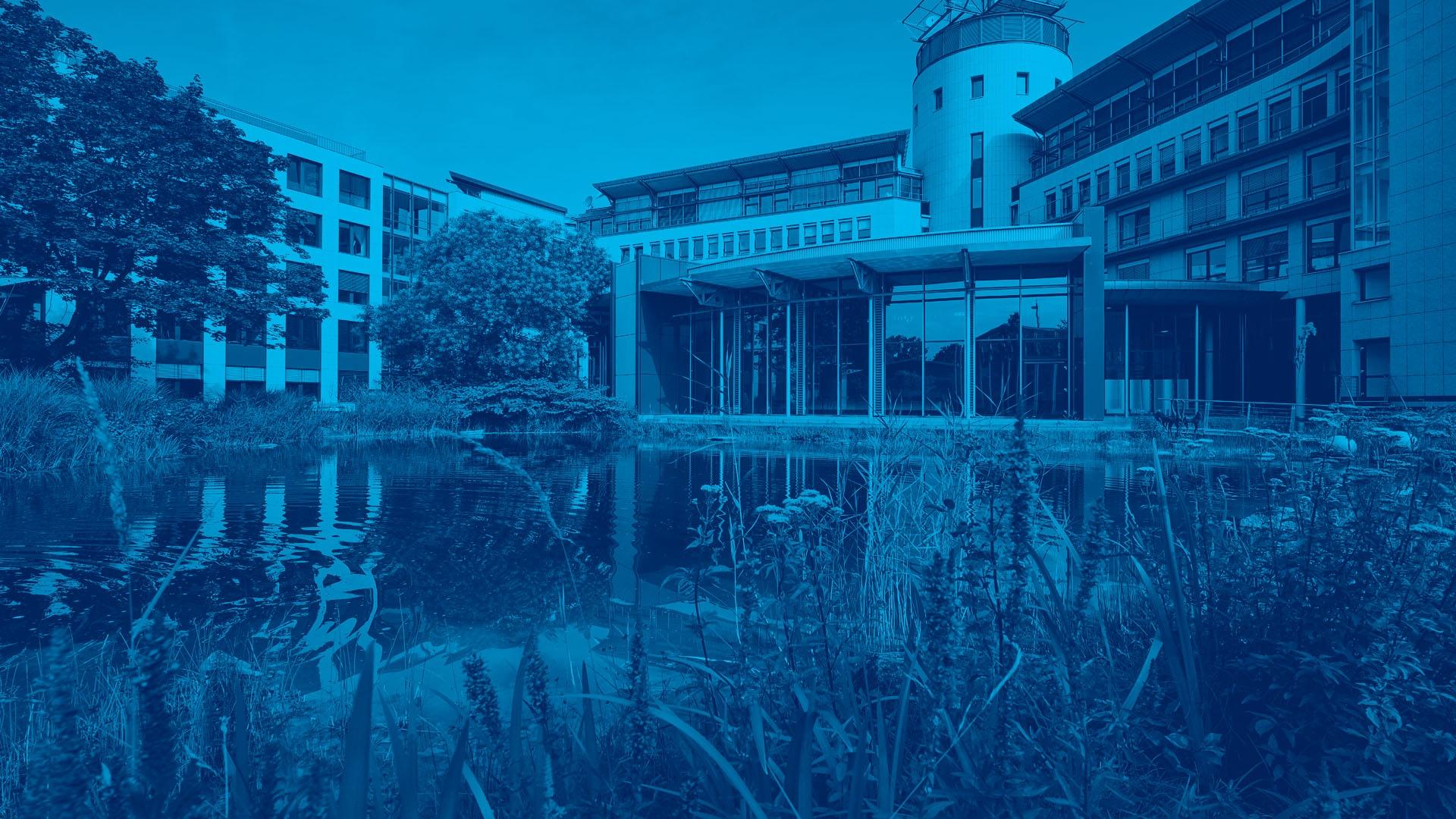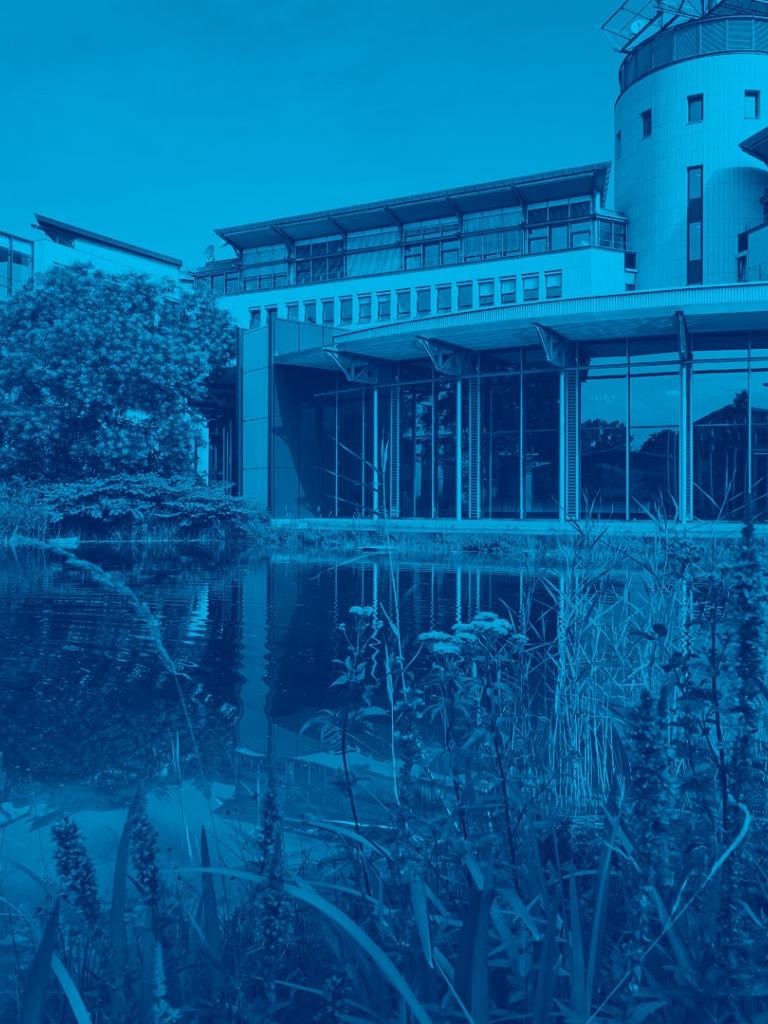
Inside EUMETSAT: meet Sean and Carmen
Inside EUMETSAT interviews Sean Burns and Carmen Ricote Navarro


Inside EUMETSAT returns this month with another in-depth interview featuring two more of our outstanding EUMETSAT colleagues: Sean Burns and Carmen Ricote Navarro! Sean started in December 1995, while Carmen joined EUMETSAT recently in April of 2020.
20 June 2023
12 October 2021
Inside EUMETSAT is a series of articles for the EUMETSAT Science Blog that will be published over the next weeks and months. Each month, we’ll introduce you to two valued members of our team: one newcomer, who joined in the past year, and one senior staff member who has spent years at the organisation.
In a time that’s far from ordinary, we hope to use this opportunity to introduce our readers to some of the diverse and friendly faces they might encounter in the course of a normal day at EUMETSAT. It’s our goal to appreciate and celebrate all the different and talented people who work here. We hope these articles will help you discover—or rediscover—EUMETSAT.
Meet Sean and Carmen!


What is your current role at EUMETSAT? What are your current duties?
Sean Burns: I am the Head of Real Time Service and System Operations (RSO) division. The teams I manage are responsible for the operations of EUMETSAT's ground segments which include the ground stations, data processing facilities and data dissemination systems. The systems operations comprise the mission control centre’s infrastructure, system monitoring and control, planning and scheduling of all our operations and maintenance activities, and training of operations personnel. Operations means making sure that all the data from the satellites flow through our ground systems, that meteorological products are produced and then sent to the users on time and without losses. The teams deal with any issues or anomalies that may affect the availability of these data and products. The users have come to expect an almost perfect data and product delivery service from our satellites and our job is to meet those expectations and keep them happy. The teams are now also very involved in the operations preparations of EUMETSAT’s new programmes Meteosat Third Generation and the EUMETSAT Polar System – Second Generation.
Carmen Ricote Navarro: I am a Spacecraft Operations Engineer working in the Meteosat Flight Control Team of the Flight Operations (FLO) division, dividing my time between the flying Meteosat Second Generation mission and the operational preparation for the up-coming new Meteosat Third Generation mission (MTG). My area of expertise is called data handling, which is the subsystem in charge of the on-board computer and the interactions between other subsystems; it’s like the brain of the satellite. I am currently focused on the preparation of the next MTG-I1 system validation test (SVT), to make sure everything is ready and works fine before the MTG-I1 launch scheduled for autumn 2022. It is a busy period for the teams working on the MTG preparation, since there are many parallel activities going on right now, but at the same time, it is really exciting and rewarding.
Do you normally interact with your interview counterpart and his/her division?
SB: RSO and FLO are siblings in the same operations family, FLO operate the spacecraft and RSO the ground segment. Spacecraft operations may affect the ground segment and data provision to users, so we work very closely together to ensure a very high availability of data to the users.
CRN: In my current position, I do not interact that much with RSO personally, but of course, both divisions work closely together to ensure the success of the missions.
What has been your biggest challenge during COVID and lockdown? Do you feel supported by EUMETSAT?
SB: It has been a challenge to maintain contact with everybody in my division and across EUMETSAT, as solving small issues can be more time consuming. Thankfully, the longer the lockdown continued, the more we became experts in using all of our remote working tools, to stay in touch and get work done. However, nothing is quite as good as chatting and resolving problems over a cup of coffee.
CRN: I joined EUMETSAT during lockdown, on 1 April 2020. My first day at work was not exactly what I had imagined: I went to the HQ reception to pick up my welcome pack and laptop and I went straight home right away. It was not easy to start in a new position without the usual interaction with the team and the system, but Human Resources and my colleagues were very well organised and supported me along the process. On the personal side, the big challenges have been the limitations to travel and being away from home during the periods when borders were closed or quarantines were applicable.
Where do you usually work from? How do you interact with your colleagues?
SB: At the moment, I along with most people in RSO and FLO, work two weeks at EUMETSAT and two weeks at home. Typically, I listen in to the operations morning meetings to find out what has happened in the past day or weekend, then my day is filled with all kinds of meetings, either in groups or one-on-one covering everything from current operations, projects, to the new programmes. It is amazing just how many different issues there are to solve in such a complex environment, to try to make our work more effective and to make sure that what we are doing is answering what our users want.
CRN: Since last year, my team is following a team A/B rotation. As mentioned by Sean, I telework two weeks at home and I work two weeks on site. I use mostly Skype to interact with my colleagues on a daily basis, and WebEx/Zoom for meetings.
What has your experience of EUMETSAT been during normal, non-pandemic times? Why do you like working here?
SB: During my time at EUMETSAT, I have been involved in the operations of all EUMETSAT's satellites, right from the beginning with Meteosat-5. I really enjoyed the work of bringing new satellites and ground systems into operations and getting all the new data to the users. EUMETSAT is a multi-cultural, multi-discipline workplace and every day brings new and interesting challenges, never a dull moment! Looking back, life in 1995 seems simple, with a single satellite and a single ground segment, and a small operations team. Everyone seemed to be asked to take on all sorts of different roles. In my first year I was a mission planner, dissemination systems engineer, data collection service manager, and even a control centre console designer. I like to think that Operations has kept the ‘can do’ attitude to this day.
What has been your experience of EUMETSAT been since your recruitment? Were you able to come to HQ and meet colleagues face-to-face?
CRN: My experience at EUMETSAT has been very good so far. After having worked many years in an FCT (Flight Control Team) at the European Space Operations Centre (ESOC), I am learning here a new way of conducting operations and contributing with my experience when possible. This means a two-way transfer of know-how, which has been a continuous source of motivation and a challenge at the same time. As for getting to know people, I have been able to come to HQ when our restrictions allowed it. It was very nice to finally have the chance to meet some of my colleagues in person. I am looking forward to getting to experience the day-to-day work life at EUMETSAT HQ after this pandemic.
What book are you currently reading?
SB:
Tomorrow, we ride by Jean Bobet. An account of his, and his brother, three times Tour de France winner, Louison Bobet’s cycling careers.
CRN:
For obvious reasons, the MTG DHS FOM (Flight Operations Manual) ?. On my bedside table, I currently have an old novel from my teenager times titled “Marina”, from Carlos Ruiz Zafón.
Which weather phenomenon represents you best?
SB:
A warm, bright autumnal day.
CRN:
I think my friends would say a storm, which is not a bad thing since storms help to keep the Earth’s electrical balance.
If expense were not a concern, what would you like to do in the next 5 years?
SB:
Take some time to cycle from Germany to Yorkshire in England.
CRN:
Travel. I love hiking, seeing wild animals in their habitat and diving. I am looking forward to more relaxed restrictions around the world so that I can continue exploring.
According to you, what is the most exciting science/technology innovation in the last century?
SB:
I think it must be the internet, but the invention of antibiotics was an amazing step forward.
CRN:
The internet.